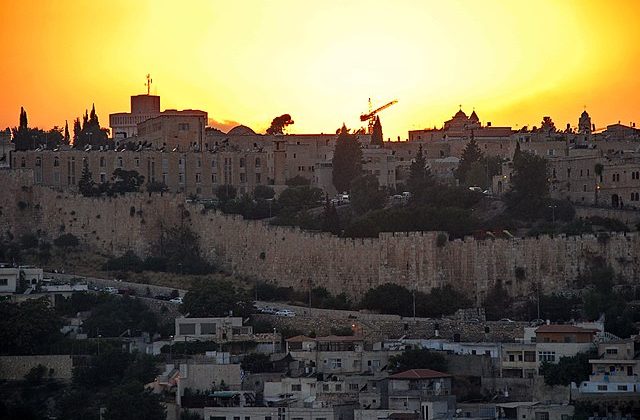

I am a dual citizen of Israel and the US. But up until age 27, I was a citizen of Israel while residing in the US. This means that when I graduated high school in the US, I had to fill out some paperwork to apply for deferment of military service in Israel. At the time, it was a fairly routine request, rubber stamped and all.
I completed college, and then applied again for deferment of military service the summer before I was to begin graduate school. Yet again, the deferment was readily approved. Then after my first year of graduate school, I got a nice formal letter (which I probably still have somewhere in the back of my closet, along with other paperwork that we all keep just in case we need it, for a few decades): the country of Israel was happy to release me from military service altogether; no more deferment applications needed.
This was in the early 2000s, so Israel was at a time of relative peace, as far as these things go. I suspect a deferment might not have been so easily issued, if I were applying this summer. Israel’s military needs seem to have increased because of the ongoing war in Gaza, and it seems like there is further anticipation of escalated conflict now. One possible sign of these dire needs? A new ruling that allows to draft the ultra-Orthodox into Israeli military. Tia Goldenberg for AP News writes:
Israel’s Supreme Court on Tuesday ruled unanimously that the military must begin drafting ultra-Orthodox men for compulsory service, a landmark decision that could lead to the collapse of Prime Minister Benjamin Netanyahu’s governing coalition as Israel continues to wage war in Gaza.
The historic ruling effectively puts an end to a decades-old system that granted ultra-Orthodox men broad exemptions from military service while maintaining mandatory enlistment for the country’s secular Jewish majority. The arrangement, deemed discriminatory by critics, has created a deep chasm in Israel’s Jewish majority over who should shoulder the burden of protecting the country.
For much of Israel’s existence this far, the country has had a universal draft: at age 18, every single Israeli man or woman begins military service. The men serve three years, the women two. It is only after the service is complete that they enter college. But there is one group that is the exception to this rule: the ultra-Orthodox. Prayer warriors and Torah studiers for life, they don’t really participate in “normal” modern life of Israel. They live apart from others, dress differently, keep kosher in a way that pretty much no one else in this very secular modern country does, do not attend secular schools or participate in other secular institutions, and so on.
As you might imagine, they are very much opposed to this new decision. Goldenberg observes the difficult logistics that are involved in all of this:
Some 66,000 ultra-Orthodox men are now eligible for enlistment, according to Shuki Friedman, an expert on religion and state affairs and the vice-president of the Jewish People Policy Institute, a Jerusalem think tank.
The ruling of Israel’s highest court must be followed, and the military is expected to begin doing so once it forms a plan for how to draft thousands of members of a population that’s deeply opposed to service, and which follows a cloistered and modest lifestyle the military may not be immediately prepared to accommodate. The army had no immediate comment.
Yeah, no wonder. The army is probably frantically trying to figure out right now how to incorporate into the military recruits who have zero preparation for anything that the military normally does. Perhaps the best analogy I can come up with is if the US were at war and decided to start drafting the Amish. There are multiple reasons why this would not go well from a cultural and theological standpoint (like, pacifism!). Although, actually, the Amish (who work outdoors and are very hands-on) would be much better prepared for such a shock than the ultra-Orthodox, who generally spend their lives indoors, do no physical labor, but just study.
And yet, surely those who have advocated for this ruling are aware of the difficulties all of this would cause–difficulties that, I suspect, would outweigh any benefits of adding up to 66,000 unprepared recruits with significant special needs to the military. So, perhaps this move is more a sign of an intensifying cultural divide in the country in the country between the secular citizens and the ultra-Orthodox. Writing for Newsweek, Jason Fields agrees.
It is strange to consider: could it be that in the officially Jewish state–the place where there is no separation between religion and the state!–that the most religiously conservative group’s right to freedom of religion is about to be violated in such a striking manner? It appears that the answer to this question is yes.
I wonder what will be the consequences of this radical move in the long term. If the forced enlistment of ultra-Orthodox men into the military proceeds in earnest, I would not be surprised to see some ultra-Orthodox try to immigrate to the US and join communities of haredim here.